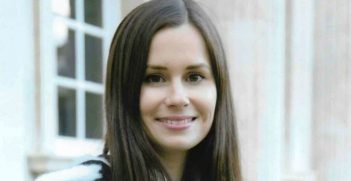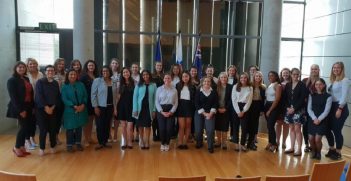16 October: The Week in Australian Foreign Affairs

This week in Australian foreign affairs: Cormann’s nomination for secretary general of the OECD; DFAT’s statement on Dr Yang Hengjun; changes to visa processes; and more.
On 8 October, Prime Minister Scott Morrison announced the nomination of Minister for Finance Senator Mathias Cormann as Australia’s candidate for secretary general of the Organisation for Economic Cooperation and Development (OECD). Morrison referred to this as the “most important Australian nomination for a major international body in decades.”
Morrison also released a joint media statement on 10 October alongside Minister for Foreign Affairs Marise Payne and Minister for International Development and the Pacific Alex Hawke celebrating the 50th anniversary of Fiji’s independence, noting that “[Australia has] been proud to support Fiji’s response to COVID-19 and Tropical Cyclone Harold.”
On 10 October, the Department of Foreign Affairs and Trade (DFAT) issued a statement on Australian citizen Dr Yang Hengjun, noting that Australia has been informed that Chinese authorities have decided to prosecute Dr Yang “on charges yet to be announced.” DFAT stated that the Australian government “has had recent consular access to Dr Yang in detention” and “will continue to provide consular support to him and his family, and to advocate for his issues.”
Minister for Trade Simon Birmingham and Acting Minister for Immigration Alan Tudge announced on 12 October the introduction of refunds or waivers of visa application charges for “tourists, working holiday makers, seasonal and pacific workers, prospective partners and temporary skilled workers whose travel has been impacted by the COVID-19 pandemic.”
On 8 October, Tudge also introduced a new requirement for partner visa applicants and their permanent resident sponsors “to make reasonable efforts to learn English.” The requirement will come into effect from late 2021, and applicants and sponsors will be able to “access as many hours of free English language classes as they need … through the Adult Migration English Program.” Tudge stated that “these new measures will provide further opportunity for migrants and new citizens to maximise their opportunities in Australia.”
Tudge further announced on 14 October that the Morrison government is “strengthening the partner visa program to protect vulnerable migrants from people who commit violent crimes against women and children.” To do so, partner visa applicants will require an Australian citizen or permanent resident sponsor to be assessed “against character and sponsorship obligations and approved before a visa application can be made.”
Minister for Defence Linda Reynolds noted on 13 October that the Australian Defence Force has completed its training of thousands of Afghan National Army officers in Qargha. She said this work “will have a lasting impact on the security of Afghanistan.”
Reynolds also released a statement on the return of the Royal Australian Navy Task Group following three months of “engagement with regional partners across Southeast Asia and the Pacific.” She noted that, “The Australian Defence Force conducts regular military-to-military engagements throughout the Indo-Pacific, to demonstrate that our commitment to our regional partners remains solid, and our desire for a stable and secure region is a priority.”
Isabella Keith is an intern at AIIA National Office.
This article is published under a Creative Commons License and may be republished with attribution.





